- Administrator
- Albums and Singles
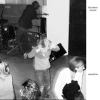 Even after the passage of 27 years of recording and releasing music, Thurston continues to map new sonic geographies. Here, his particular focus is on all-out cathartic, expansive but nevertheless gritty, crater-strewn guitar-drone and feedback terrain, ranging across vast fields and landscapes to create his works of cyclopean noise.
Even after the passage of 27 years of recording and releasing music, Thurston continues to map new sonic geographies. Here, his particular focus is on all-out cathartic, expansive but nevertheless gritty, crater-strewn guitar-drone and feedback terrain, ranging across vast fields and landscapes to create his works of cyclopean noise.
Moore presents us with three sedimentary layers of granitic noise, consisting of the short four minute "Whisper" sandwiched and compressed between two lengthy 20+ minute epics that lend their names to the title of the album, "Sensitive" and "Lethal." "Sensitive" flies in with a meditative drone-field combined with a strummed acoustic six-string just perceptible in the mix, and punctuated violently with machine-gun staccato bursts and overlaid with frenzied guitar-spawned feedback screeches and chirps; a series of tectonic upheavals gouging out deep fractures and chasmic trenches, chunks of rock, earth and gargantuan boulders being flung haphazardly this way and that. The closing 26 minute piece, "Lethal," bombards with equally dramatic and relentless blasts of sonic destruction, grainy loops and stabs of klaxon guitar sludge, high-pitched howling seismic feedback, and spectacularly eruptive granularity, and veined with a persistent locust buzz, the whole descriptive of the tortured anguish of a ruptured planet with its cracking, splitting, breaking, and wrenching. In between these two, Moore spreads a thinner, more savory layer of looped guitar feedback and harmonic drone in the form of the aforementioned "Whisper," an interlude of comparative and relative quiescence, certainly less frenzied and less cataclysmic than the two pieces which bracket it, but just as noisy; a breathing space between the fire and brimstone detonating from the earth and crashing down from above.
The wonder (and relief) of this is, that even after nigh on three decades of performing and creating, where others seem to mellow out and settle back into insipid self-indulgent dotage, Moore still retains the capacity to be incendiary. Some would of course argue that this is just another species of self-indulgence and in some ways this assertion carries with it a grain of truth; however, Moore isn't going to be held hostage either to convention or popular taste, or to the vagaries of musical fashion—he'll follow his own path. The pieces contained herein are, therefore, almost a confessional, an apocalyptic catharsis, an outpouring of the deepest-seated traumas buried within the psyche, the inner personal upheavals reflected in the outer seismic fracturing Moore convincingly portrays. People tend to forget that the ruptures of the fabric of the mind are as devastating in effect as those ruptures in the earth's crust, causing as much disruption, anguish, and suffering for the one as for the many – as above so below, the macro being mirrored in the micro.
Moore is an exquisite and literate craftsman, sculpting and molding random granular chaos into a crunching, crushing monolithic order, the end result exhibiting a mass and weight big enough to generate its own gravitational field. But like some kind of deity perched somewhere up above the confines of the big blue planet below, Moore directs and wills his material to do his bidding and into the shapes he desires. Truly monumental stuff.
Samples:
Read More
- Administrator
- Albums and Singles
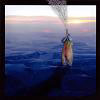 Despite Matt Waldron describing at least one of the performances as a "live disaster," this is an excellent collection of splendid music performed with various line ups of his ongoing surrealist project. This compilation documents shows from 2005-2007 and features not only Waldron but also the not inconsiderable talents of Steven Stapleton, Jim Haynes and others.
Despite Matt Waldron describing at least one of the performances as a "live disaster," this is an excellent collection of splendid music performed with various line ups of his ongoing surrealist project. This compilation documents shows from 2005-2007 and features not only Waldron but also the not inconsiderable talents of Steven Stapleton, Jim Haynes and others. Although some of this material is instantly recognizable, the live sound of irr. app. (ext.) is quite different to how Waldron makes it sound in the studio. There is a much more playful vibe here compared to the more finely structured versions on the studio albums. Looking at the photos in the sleeve while listening to Aspiring to an Empty Gesture, the irr. app. (ext.) live experience looks like a real hoot. "Some Scottish Toasts" (from the original Brainwaves) and "Invocation of Loplop in the Cathedral of Erotic Misery" both are utterly gleeful, the humor here more obvious (but not less effective) than usual.
Waldron's ability to creep me out is also present in significant amounts. "The Dreadful Vagrant" is as unsettling here as it is on Perekluchenie. The narration sounds more natural here than in its original form on record; the cuts in the audio are less evident and it allows the tale to have a stronger effect. The calm, almost too calm, nature of this piece in stark contrast to "Wisecrack;" "Who can find you sexy, empty human bits, your perfume is filthy to my senses." It is difficult to feel comfortable when that is being screamed through your stereo!
What originally drew me to Waldron's wonderful irr. app. (ext.) project was his remix of Nurse With Wound's Angry Eelectric Finger sessions. Since then he has become more and more active within Steven Stapleton's world and Stapleton has intruded (pleasantly) into Waldron's music too. A few of the tracks here feature Stapleton on percussion and odd sounds. One of these is an awesome cover of NWW's "Two Golden Microphones," the song sounds extremely intense as a guitar violently explodes through the manic percussion. Also included is a real live Nurse song from their show in Porto last year. David Tibet was unable to join them that night so Waldron took over the microphone duties for "Dead Side of the Moon" and he does a bloody good job of it.
What is best about this CD is that even though it is a compilation, it flows perfectly and sounds like an unedited live performance (even if the band changes completely from irr. app. (ext.) to NWW at one point!). This is fast becoming one of my favourite albums by Waldron (and friends) which is no small feat considering I enjoy his work immensely as it is. Now just to get him to play on this side of the Atlantic and put together a second volume of Aspiring to an Empty Gesture.
samples:
- Two Golden Microphones
- Elastic Axolotls Worried by a Clockwork Heron
- Invocation of Loplop in the Cathedral of Erotic Misery
Read More
- Administrator
- Albums and Singles
 Important have really pushed the boat out for Kluster/Cluster fans. A brace of live albums from Conrad Schnitzler's archives and another live album from one of last year's Cluster reunion shows. Not all three releases are essential but all have been made with a lot of love and care, from the audio right down to the embossed sleeves made in the style of the original Kluster LPs.
Important have really pushed the boat out for Kluster/Cluster fans. A brace of live albums from Conrad Schnitzler's archives and another live album from one of last year's Cluster reunion shows. Not all three releases are essential but all have been made with a lot of love and care, from the audio right down to the embossed sleeves made in the style of the original Kluster LPs.
Admira and Vulcano both document live performances by Kluster but without Hans-Jochim Roedelius and Dieter Moebius who had left to form Cluster at this point. Both these live albums sound quite different to the studio albums Kluster released around the time these performances occurred, no doubt due to the departure of Roedelius and Moebius and the addition of unspecified "friends" to the lineup. No matter what the lineup, these archive recordings sound remarkably crisp for tapes that have been sitting on a shelf for decades. I may not enjoy everything Schnitzler has put his name to but the man sure knows how to make recordings sound good.
On Admira, a collection of pieces from multiple concerts in 1971, the clanking rhythms of the studio albums mentioned above appear and an echoey violin is scraped queasily alongside. It is easy to imagine a young Throbbing Gristle taking notes while listening to this. Some of the pieces sound like an unfinished jam (which they probably were), stopping dead in the middle of a piece in some cases. However, there are moments of almost ecstatic clarity such as the sixth track: nearly eight minutes of pulsing synths and a languid, trippy drum rhythm. Overall, Admira is more chaotic than the studio albums and because of its nature as a compilation, it does not flow very well but it is still a wonderful set of recordings.
samples:
 Vulcano is an entire gig recorded in Wuppertal in 1971. The violin has been left in its case and a flute is instead employed to great effect. The music is less uncomfortable sounding than that on Admira. As this is a full concert, the sounds are given enough time to unfold into their full form. Although it is a far cry from the motorik style of Krautrock typical of Neu!, this is a perfect album for driving. On an empty motorway at night, I got deeply into this album (although not too deeply!). The undulating waves of sound build up slowly to an almost cosmic intensity, Vulcano is utterly immense. It is a shame that it has lain in an archive for so long but thankfully it has finally seen the light of day.
Vulcano is an entire gig recorded in Wuppertal in 1971. The violin has been left in its case and a flute is instead employed to great effect. The music is less uncomfortable sounding than that on Admira. As this is a full concert, the sounds are given enough time to unfold into their full form. Although it is a far cry from the motorik style of Krautrock typical of Neu!, this is a perfect album for driving. On an empty motorway at night, I got deeply into this album (although not too deeply!). The undulating waves of sound build up slowly to an almost cosmic intensity, Vulcano is utterly immense. It is a shame that it has lain in an archive for so long but thankfully it has finally seen the light of day.
samples:
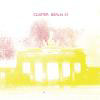 Jumping forward nearly 40 years since the group's inception, Roedelius and Moebius returned to the stage as Cluster. Berlin 07 features two long tracks, bubbling electronics that echo the older Cluster releases but also have a modern sheen to them. To be honest, I was not expecting this to be great as the Rother and Moebius performance I saw a couple of years ago was so patchy. Thankfully, this pairing works much better (or I saw a bad night of the other duo). It is by no means a classic release and when compared to the two live albums above, it pales. However, taken on its own terms Berlin 07 is a decent album with some stellar moments. It may drag at times but its merits far outweigh its faults. It may not be worth a thousand words but the picture of Roedelius and Moebius grinning over a glass of wine says it all: a pleasant time with old friends.
Jumping forward nearly 40 years since the group's inception, Roedelius and Moebius returned to the stage as Cluster. Berlin 07 features two long tracks, bubbling electronics that echo the older Cluster releases but also have a modern sheen to them. To be honest, I was not expecting this to be great as the Rother and Moebius performance I saw a couple of years ago was so patchy. Thankfully, this pairing works much better (or I saw a bad night of the other duo). It is by no means a classic release and when compared to the two live albums above, it pales. However, taken on its own terms Berlin 07 is a decent album with some stellar moments. It may drag at times but its merits far outweigh its faults. It may not be worth a thousand words but the picture of Roedelius and Moebius grinning over a glass of wine says it all: a pleasant time with old friends.
samples:
Read More
- Administrator
- Albums and Singles
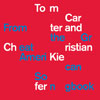 Surely having a higher concept than just to perform public domain songs that they wouldn't have to pay royalties on, Tom Carter (Charalambides) and Christian Kiefer take a run through at some infamous and not so famous pieces of classic American folk that occasionally remain faithful directly to the mood and sound of the early 20th century, and at other times diverge wildly and brilliantly.
Surely having a higher concept than just to perform public domain songs that they wouldn't have to pay royalties on, Tom Carter (Charalambides) and Christian Kiefer take a run through at some infamous and not so famous pieces of classic American folk that occasionally remain faithful directly to the mood and sound of the early 20th century, and at other times diverge wildly and brilliantly.
The ensemble consists of Carter on electric guitar and Kiefer on acoustic/resonator guitar, often aided by Kiefer's associates Scott Leftridge on bass and Ben Massarella on percussion. The opening tracks of the album, "The Coo-Coo Bird" and "Hard Time Killing Floor Blues" tend to remain closer to what would normally be considered Americana folk, skeletal and fragmented with simple instrumentation. The former especially channeled the same tonal vibe that I got from the first Dire Straits album (which is no insult, I've always loved that sparse simplicity and warmth of that album), while the latter's slightly country twang is reminiscent of Earth's recent work, but with a more classic sound and improvised, as opposed to conventional, percussion.
"Go Dig My Grave (Railroad Boy)" is the first that features vocals, which are processed and affected to give a more "authentic" sound, like the brittle wax cylinder recordings of field recorded Appalachian folk music that are still seeing release today. That track makes for a notable dichotomy, because though the vocals are purposely treated to sound more dated, there is also a notably greater presence of studio processing and trickery on the actual instrumentations.
The duo's take on the murder ballad "Pretty Polly" is one of the standout tracks here for its more drastic divergence from the formula that was established previously. Clocking in at around 12 minutes, there is an odd balance of unconventional instrumentation added; both classic (a sawblade xylophone) and contemporaneous (an E-bow) that cast the piece in an entirely different light. The vocals and overall instrumentation feel much more contemporary, rather than an historical look at music of the past. Structurally, it does an excellent job of building all of the tension and darkness a murder ballad should have, culminating in a wonderfully chaotic passage near the end.
Perhaps the most drastic change from the original source material comes in the form of a unique take on "The Entertainer." It is a safe bet that even if people aren't familiar with Scott Joplin's 1902 ragtime classic by name, the piano melody that is synonymous with it will be undeniably familiar. However, taken away from being the focus of the track, here it is instead supplanted by droning electric guitar noise and tense piano and drum duets. The ending of the track, which is completely unhinged and violent before segueing into the familiar piano melody, is one of the greatest moments in music I've heard this year.
From the Great American Songbook stays faithful to the classic source material that the songs are built upon yet expands and changes them to make it the work of Carter and Kiefer, and not a "covers" album or something as equally mundane. Plus, I would be remiss for not commenting on the packaging, which is a lovely fold-out package with individual cards for each track in which various other artists comment on the tracks that were selected for inclusion here.
samples:
Read More
- Administrator
- Albums and Singles
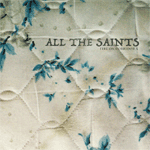 With their debut album following up the wildly successful A Place to Bury Strangers self-titled on Killer Pimp, All the Saints have a rather large pair of shoes to fill here. This trio travels on similar roads as the their label mates, but with a different stylistic approach. The love of noise and psychedelic feedback is here, but somewhat tempered by a slightly less aggressive, more accessible sound that is no less enjoyable and shows the same attention to "songs" as opposed to just "noise."
With their debut album following up the wildly successful A Place to Bury Strangers self-titled on Killer Pimp, All the Saints have a rather large pair of shoes to fill here. This trio travels on similar roads as the their label mates, but with a different stylistic approach. The love of noise and psychedelic feedback is here, but somewhat tempered by a slightly less aggressive, more accessible sound that is no less enjoyable and shows the same attention to "songs" as opposed to just "noise."
The disc is bookended by the brief instrumentals "Shadow, Shadow" and "Mil Mil," both channel Nico-era Velvet Underground with their slow, fuzzed out guitar and soft organ passages. For the most part, these end up the most subdued minutes on the album, as the segue into the thick and heavy vibrato guitar of "Sheffield" that manages to be completely loud, but not muddled, sitting nicely in a clear mix. There is a definite feel of 1990s alt rock influence, but rather than falling into a rut of rose-tinted tribute band nostalgia, it instead is more than happy to blow out into loud, noisy passages that would have been too much for most of those more conventional grunge era folks.
The linkages to APTBS will surely be played up by others in various media outlets, but while the former were more likely to prefer the noisy walls of distortion like My Bloody Valentine, All the Saints set their shoegaze sights more towards Spacemen 3 and Loop, relying more on the repetitive elements that, while by far not easy listening, are definitely less abrasive. "Hornett" and "Outs" both ape Sonic Boom and J. Spaceman's penchant for opium den hazy distortion, but have no problem throwing that out the window to add on a bit of 1990s grunge metal riffing that somehow works, despite how it sounds on paper. It's not quite Spiritualized meets Soundgarden (Soundalized?) but not completely off the mark either.
Being that these guys are coming up from Alabama by way of Atlanta, the almost REM vocal arrangements of "Farmacia" could be entirely a product of geographic osmosis, but the combination of lead and backing vocal arrangements honestly give me that sort of vibe, even if the rest of the music is much more thrashing than anything on Reckoning. The almost new wave feeling of "Papering Fix" gives a similar sensation as well, but without any specific reference point one can draw other than just the ambiance.
On their debut, this trio takes that 1980s-90s nostalgia that has been on the upswing in recent months, but like APTBS and bands of a similar ilk they are nostalgic, without being unoriginal or resembling a bad bar mitzvah cover band, wearing their influences on their sleeves and breaking new ground in the process. They can balance that love of pure dissonance and distortion yet still make a song that isn't afraid to be catchy and memorable.
samples:
Read More
- Administrator
- Albums and Singles
 Troy Southgate possesses something of an impeccable musical pedigree, contributing his unique vocals to H.E.R.R. and Horologium, plus guesting on albums by Von Thronstahl, Survival Unit, Sagittarius, Erich Zahn, Sistrenatus, and many others, in addition to being a writer and political commentator. Now the South Londoner conspires with Kammer Sieben's Butow Maler and Herr Twiggs (plus contributions from Maria Southgate [Troy's daughter], as well as Horologium's Eustacia Vye) to add yet another name to the ever-growing list: the Anglo-German Seelenlicht ('Soul Light'); and this, Gods and Devils, is the debut album resulting from that union.
Troy Southgate possesses something of an impeccable musical pedigree, contributing his unique vocals to H.E.R.R. and Horologium, plus guesting on albums by Von Thronstahl, Survival Unit, Sagittarius, Erich Zahn, Sistrenatus, and many others, in addition to being a writer and political commentator. Now the South Londoner conspires with Kammer Sieben's Butow Maler and Herr Twiggs (plus contributions from Maria Southgate [Troy's daughter], as well as Horologium's Eustacia Vye) to add yet another name to the ever-growing list: the Anglo-German Seelenlicht ('Soul Light'); and this, Gods and Devils, is the debut album resulting from that union.
Due, no doubt, to the prevailing emphases on neo-classicism and martial industrial that both members' main bands profess, there is almost an embarrassment of riches here. Cellos, violas, pianos, woodwind, organs, and percussion, weave a glittering tapestry backdrop for Southgate's half-spoken half-sungand spoken word ruminations on various topics of over-riding and abiding interest to him. It ranges from the daily commute to central London from the outlying regions and its inherent connection to feeding the wheels of capitalism and globalisation, to pastoral idylls and the particular ambience engendered by the notions of 'England' and 'Englishness'. Above all, the voice I hear on this album is overwhelmingly Southgate's, to the point where it almost seemed like a solo vehicle; and in all honesty at times I felt that the only role Maler's martial-classical music fulfilled, as wonderful and sonorous as it is, was simply as an accompaniment to a series of the former's essays based on his preoccupations.
Southgate has a unique and instantly recognizable delivery style that immediately divides listeners into those that love it and those that loathe it. I find myself being neutral over whether it works for me or not, sometimes feeling that the down to earth and almost homely delivery, set against a neo-classical and pop-martial backdrop, brings the subject matter into the orbit of the average man on the street, delineating his concerns and his helplessness in the face of global forces beyond his control. Simultaneously it is eminently apparent Southgate's avid passion for his vision of Englishness and the soul of "dear old England" are perfectly enunciated by his manner of delivery. At the same, I can also see how this will immediately limit its attraction to those whose natural sympathies are with a nostalgic painting of England as seen through an idealistic lens and that those who don't share such a vision might find it off-putting. There's nothing nationalistic about this however in the sense of an aggressive outpouring of patriotic sentiment. Instead it harks back to a vision of an idealised England that is peculiar to the English spirit, exemplified by the notion that somehow England is one of the best places in the world in which to live and work, an Edenic paradise not found anywhere else.
The style of delivery is best exemplified on the three part "Diary of Desolation," a lament in prose form about how our daily lives are nothing but empty shells for the most part, ultimately being manipulated by the forces of commercialisation and globalisation; it makes the telling point that 'culture,' even that which we deem to be 'alternative,' is in fact a manufactured phenomenon itself, created in the minds of marketers and cultural movers and shakers with the express intention of helping us to part with our cash. Language is very important for Mr. Southgate, often employed as a subtle but sharp weapon; as in H.E.R.R's last release. "Glass and Steel; a Norwood Tragedy," Southgate employed language as a means of directly evoking time and place, and as a way of giving a solid substantiality to the veritable soul of his England. It worked admirably on the H.E.R.R album, and it works effectively here too. Also, the inclusion of that quintessential English poem "She Walks in Beauty" by the equally quintessential English poet Byron reinforces the notion of the essential soul of England; add into the mix a few references to Herne the Hunter and Celtic mythology as well as areas of southern England and the coast further reinforce that particular ambience.
A particular favourite is "Valhalla," a humorous enumeration of Southgate's heroes, including Hemingway, Wilde, Orwell, Blake, Tolkien, and Crowley, in addition to Mishima, Heidegger, Sartre, Nietzsche, and Blavatsky, with Maler's bombastic drum 'n' martial music providing a suitably expansive high-flying backdrop and adding gravitas. Other highlights include a two part meditation on the sea and its unpredictable moods, 'Some Thoughts on the Janus Shore,' reflecting in both word and music its capricious nature, and capturing the metamorphosis from calm benignity to sudden malignity; the closing track, 'Seelenlicht,' a haunting refrain over which Southgate sings in German.
Without a doubt, it's a good album of its type, exemplifying the martial/neo-classical genre to perfection. Admittedly this is one of those albums that some people may find not to their taste, and the sentiments expressed may not jibe with everyone, however that shouldn't limit its appeal too much if the listener is prepared to look beyond the boundaries; while I don't necessarily share as sharp a sense of place as Southgate obviously does and its ties to the soil of England, a sense of belonging that many share which extends to those of other origins, I am well aware of the importance that some place on these things. While I wouldn't go so far as to let it have a place in my best of year lists, it certainly won't find a place in my worst of year either.
Samples:
Read More
- Administrator
- Albums and Singles
 Every so often, something wafts my way, lands on my desk, and takes me completely by surprise. Such is the case with Brisbane's The Rational Academy and their debut CD A Heart Against Your Own, their eclectic mix of pop melodies, noise, and avant-pop sensibilities sweeping over me in a tsunami of warm fluffiness and bright sunshine. My natural constituency is normally nowhere near this kind of bright melodic pop-tunefulness, but it won me over with its naturally sunny disposition tempered with a bittersweetness and a noisiness that would, on paper at least, appear to be a recipe for disaster.
Every so often, something wafts my way, lands on my desk, and takes me completely by surprise. Such is the case with Brisbane's The Rational Academy and their debut CD A Heart Against Your Own, their eclectic mix of pop melodies, noise, and avant-pop sensibilities sweeping over me in a tsunami of warm fluffiness and bright sunshine. My natural constituency is normally nowhere near this kind of bright melodic pop-tunefulness, but it won me over with its naturally sunny disposition tempered with a bittersweetness and a noisiness that would, on paper at least, appear to be a recipe for disaster.
This album's ultimate success may have something to do with the involvement of Room40 label boss Lawrence English—certainly if his music and his label's back catalogue is anything to judge by, then his ear for crafting and finding finely-honed music almost ensures a winning formula. Here he takes on the dual roles of band member and producer; the resulting guitar-based music positively shimmers from the speakers, sparkling breakers lapping against rocks, the foam flinging itself joyfully into the air, catching the sun's rays, and glinting against the azure. Set against that though is an artful self-indulgence, in lesser hands awkward and annoying but here invested with a pure joyfulness and engaging innocence, ably assisted by simple guitar lines and the combination of the singing of Benjamin Thompson and the 'butter-wouldn't-melt-in-my-mouth' sweetness of Meredith McHugh's voice. If nothing else it reminded me strongly of the '80s English band Altered Images in parts, with that same combination of an almost childish singing voice with bittersweet reflective lyricism, but instead infused with a sharper and more experimental aesthetic lacking from the antecedent outfit.
Take as a fine example "Jojoplanteen," the second track, which starts off plainly enough in introspective pop-guitar band territory and seeming to appear to plow a well-worn furrow, Thompson's voice harking back to a time of foolish youth and ignorance, and memories of youthful love, all backed by strummed and plucked guitars the likes of which have been heard countless times; the tone metamorphoses when the track explodes in a wall of noise and feedback at the end, a deliberate reflection of how time changes everything in the light of maturation and the gaining of wisdom, including views, ideas, and the very nature of memories themselves. It is well-judged though; it hasn't been introduced as an afterthought and it sits naturally and easily, a logical conclusion most definitely.
"2004" turns out to be my favorite song on here, stalking bass and gothic-tinged guitar hanging and levitating almost sinisterly in the background, while Thompson and McHugh's melodic and plaintive duet enumerates a series of reminiscences, a thick miasma of longing and regret that appears at odds with the brooding menace that just hangs around in the background yet manages simultaneously to be strongly underlined by it. It's almost like the Hansel and Gretel tale; a couple talking innocently about the untainted past while walking through a dark shadowed forest, the night-ghouls and terrors being held back by that very innocence yet somehow being underscored by a sense that all is not well even so.
"Squid and Whale" continues that tense standoff between the sweet and the sinister, a nine and a half minute epic dedicated to a strange beauty, and possessing the selfsame qualities itself. It twists and turns, veering from the pop-styled opening few minutes to a shiveringly dark ambient interlude that once more bursts out in technicolor in a gloriously cacophonous fuzz-out noise-fest, eventually calming down once more into familiar guitar territory. Just to keep things sweet, the album closer brings us a delightful glockenspiel and guitar love song that helps to bring things full-circle and to a satisfactory end.
I liked this, and it just goes to show how the mix of styles and experimental approach can be used to brilliant effect on something like 'pop' music, elevating out of the morass of pap that usually clogs that genre. It would be nice to think that one day all such music will be of this caliber, but for now we will have to be satisfied with these little diamonds.
Samples:
Read More
- Administrator
- Albums and Singles
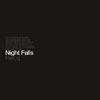 Detached from the goofy Renaissance Faire quality themes of post-industrial neo-classical music, the prolific producer marks a drastic, though lackluster, departure from his typically rhythmic past. Devoid of danceability, its transuding caliginosity faux-menaces like a murky slime creeping towards an unsuspecting idyll at sundown.
Detached from the goofy Renaissance Faire quality themes of post-industrial neo-classical music, the prolific producer marks a drastic, though lackluster, departure from his typically rhythmic past. Devoid of danceability, its transuding caliginosity faux-menaces like a murky slime creeping towards an unsuspecting idyll at sundown.
For over ten years, Hymen has made its stubborn mark on the landscape of electronic music. Initially a rough riding offshoot for Ant-Zen's more accessible acts, it morphed from moody malcontent into a more diverse champion of IDM's late bloomers, such as Kattoo, Keef Baker, and Tonikom. Another of these belated upstarts, Ben Lukas Boysen, has previously recorded three such albums for the self-proclaimed technoid imprint since 2004, all under the moniker Hecq. With this, his fourth for Hymen and sixth overall, the producer tossed his drum machines overboard and set a course for dark waters tread (and retread) by the Cold Meat Industry roster.
Boysen has evidently taken pains to craft a bleak soundtrack to a nonexistent drama, yet as with so many actual film scores, detachment from visual cues and pivotal plot points leaves the unfamiliar listener to judge the music on its own. In the case of Night Falls, such analysis is to its detriment. Unlike labelmate Lusine Icl's surreptiously melancholic Language Barrier, which ought to have resuscitated people's interest in purified ambient music, Night Falls is understated to a fault, its bland latter half rampant with elongated tone worship that neither shatters templates nor effectively challenges today's dominant dronesmiths. Practically seamless transitions between tracks frequently fail to excite. The unimaginative vocal surges on "Red Sky" that break up the preceding, pervasive monotony pale in comparison to Attila Csihar's fiendish guttural collaborations with Stephen O'Malley.
Despite its wishful beginnings and triumphant closer, the bombastic tearjerking "I Am You," Night Falls suffers from such an inexplicably prolonged slump that no ham-fisted orchestration can save this pretentious mess. Had Boysen sought simply to write background music for downtrodden goths and other such mopes to passively absorb while sulking through Second Life, this album might be considered a success. Yet it is clear that he sought more from this venture, a new direction for Hecq or a possible ascendancy to the rank of "composer." While this weak first attempt shouldn't entirely dissuade Boysen from pursuing further beatless journeys, he is no Graeme Revell.
samples:
Read More
- Administrator
- Albums and Singles
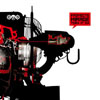 Western Europe has arguably had great influence over electronic music these last few years, with rebellious artists like Justice and Boys Noize legitimizing gritty, harsher sonics in stark contrast to the overexposed slickness of meathead-friendly dance. That trend makes this Spanish duo's latest all the more maddening and highlights the stultifying insulation of the current generation of industrial musicians.
Western Europe has arguably had great influence over electronic music these last few years, with rebellious artists like Justice and Boys Noize legitimizing gritty, harsher sonics in stark contrast to the overexposed slickness of meathead-friendly dance. That trend makes this Spanish duo's latest all the more maddening and highlights the stultifying insulation of the current generation of industrial musicians.
Miss Kittin probably had the right idea pitching Batbox, her recent self-released long-player, as a goth album, all things considered. Knowing that nobody keeping pace with what's dominating forward-thinking dancefloors on both sides of the the Atlantic could stomach something so regressive, it must have seemed reasonable to assume that only the hopelessly coddled black-clad masses could possibly stomach it. A trip to any city's local goth and/or industrial party will likely reveal an audience enjoying songs that would have seemed a bit stale to just about anyone else ages ago. Particularly noxious is the more clubby fare, ranging from plodding dark trance with indistinguishable cookie monster vocals to oversimplified disco noise. While the latter category has produced a handful of worthy acts, the bulk of new music likely to be played to these half-empty venues hardly warrants the limited attention it receives.
Referencing happy hardcore, electroclash, and jungle, three more completely stagnant subgenres, Turn It On numbs the mind with its incessant regurgitation. Having barely progressed from a four-album tenure with Hands Productions, Proyecto Mirage operates as if stranded on a desert island since 2000. Fast-paced cuts like "Cermol" and "Piano Song" recall Hypnoskull, a far worthier though equally stunted Ant-Zen artist, while the more sluggish "Salvation" marches to the same beat as early Covenant or even Front 242. The machine clatter and bleep of "Darker Bex," the sole attempt to shake things up, lacks the spirit of its forebear, Speedy J, who nailed this style with A Shocking Hobby eight years ago.
The vocal numbers feature laughably trite lyrics that I want to chalk up to the language barrier. (I suppose if I tried to write songs in something other than my native tongue that I'd come across similarly mockable.) With a dated melodic hook that pilfers from Zombie Nation circa 1999, "Cannibal Party" has the duo's better half, Alicia Willen, absentmindedly mumbling hackneyed phrases with a trace of punk attitude. Despite implied affection towards Esplendor Geometrico and assumed appreciation for DAF, Proyecto Mirage appears aloof, altogether unaware of what made those pioneering projects so novel. Only a scene as retrograde and underwhelming as industrial could nurture a band like this for so long without expecting or demanding more.
samples:
Read More
- Administrator
- Albums and Singles
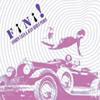 Faust's Jean-Herve Peron joins Andrew Liles for an album full of childlike joy. From the electric colours of the sleeve to the electric performances on the disc, this is a wonderful way to spend three quarters of an hour. Both artists sound like they are having fun and the cheer definitely filters through.
Faust's Jean-Herve Peron joins Andrew Liles for an album full of childlike joy. From the electric colours of the sleeve to the electric performances on the disc, this is a wonderful way to spend three quarters of an hour. Both artists sound like they are having fun and the cheer definitely filters through.
This is a fitting sister album to the Faust and Nurse With Wound collaboration Disconnected. There is a more playful vibe to Fini!, from Peron's lyrics (although some of it sounds like idle studio talk removed from its original context; "Is this Kate Bush?") to Liles' disorientating arrangements. Taken together, the 14 tracks that make up this album are as varied as anything dotted throughout the Faust or Andrew Liles back catalogues but all the songs sound like they belong together. There is the kraut stomp of "The Drummer is on Valium" and the philosophical "I Have Lost Faith in Words;" both similar in spirit but very different in execution.
The majority of the pieces here are on the shorter side of things, ranging from 40 seconds to a couple of minutes in most cases. Sometimes I feel like they have been stopped far too early, ideas that could go further are stopped short but it never feels like I have been short-changed. Tracks like "Congo Bongo La La La" might well deserve to be longer but they still pack the punch that you want and realistically, there is only so many long songs an artist can do in their careers before they need to shake things up a bit (and both Liles and Peron are no stranger to long songs).
Not that it is all little snippets of sound, there are some meatier pieces on the CD. The twisted Middle Eastern music by way of Wümme in "Shake Your Hooves" is very satisfying. For five glorious minutes, a fuzzed out bass guitar propels the track along like a runaway horse. It is the perfect length, not outstaying its welcome but sticking around long enough to sink your teeth into. However, things get even better with "It's Too Loud" as Peron appears in both stereo channels in various languages while a Velvet Underground style guitar rhythm builds up in the background. If VU kicked Lou Reed out of the band and hired Peron in his stead then "Sister Ray" would probably have started like this.
Considering Liles has played live as part of Faust and there is at least one planned performance of Fini! later this year, I dearly hope he continues to work with Peron either in or out of Faust. This album is full of superb moments and it would be a shame if this was to be the only release by the duo.
samples:
Read More
- Administrator
- Albums and Singles
 Artist: Nordvargr
Artist: NordvargrTitle: Pyrrhula
Catalogue No: CSR98CD
Barcode: 8 2356644872 3
Format: CD in jewelcase
Genre: Black Ambient / Doom / Drone
Buy CD | Download Album
Partly based on an old Swedish folktale, Pyrrhula ("Doomlord") is a pitch black journey into utter darkness. This is a tale of foreboding doom... a portent of dark times to come... a blight on the face of this earth. These eight Black Ambient / Doom / Droneworks were brought forth from the abyss of Villa Bohult exclusively for Cold Spring and contain the malevolent vocals of Lord Nordvargr himself!
"Beware the small creatures of light, they only bring misery and death upon the enlightened ones. For they will paint their breast with blood and reap your unborn angels".
Special limited edition of 100 copies also available - comes with exclusive Nordvargr black and silver embroidered patch. Only available directly from Cold Spring!
Tracks: 1. 'Another Weeping Doomlord Lost' (4:20) | 2. 'Pyrrhula One' (10:24) | 3. 'Inwards To Salvation' (4:41) | 4. 'Tordön' (2:12) | 5. 'Hascimh Reborn' (4:56) | 6. 'Pyrrhula Two' (9:11) | 7. 'Aryana Of The Open Wound' (4:46) | 8. 'Stripped Of All But My Loyalty I Serve ' (5:16)
Read More

